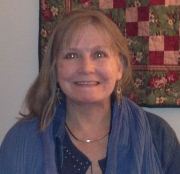“Patients were patients…and then they were clients.”

Pat Frame remembers a time when her nursing job guaranteed her free medical treatment. Today, the Sleepy Hollow resident is experiencing a very different health care landscape—and an urgent financial need stemming from a lifesaving 2015 kidney transplant.
Frame was diagnosed with end-stage renal disease after a 30-year career as a registered nurse. She worked at Harkness until her younger brother, who had just come home from Vietnam, was killed in a car accident in 1973. Pat returned home then began a new career at Putnam Community Hospital in 1974. What she saw there is a far cry from many modern patients’ health care experiences.
“It was a rural area that was still served generously,” explained Frame. “The relationships that I saw between doctors and patients were trustworthy and stable.” That stability extended into the financial side of care: “It was a time of simple payment plans. The doctor sent each patient a bill, and the patient paid or discussed difficulties with payment upfront directly with the care provider.” For medical professionals like Frame, care wasn’t just affordable—it was free.
That’s when everything began to change.
“Over a period of ten years,” she said, “a curious new entity emerged called ‘managed care.’ It seemed to stem from the need to financially fund health care organizations. In the beginning, patients were patients—by the end of this transition, they were clients. This was a direct reflection of a new, businesslike approach to health care.”
“When I left, I didn’t realize that I was saying goodbye to an era in health care which would soon be gone forever,” explained Frame. “My co-workers and I could never have imagined the even more extreme changes to come: insurance companies, big pharmaceutical organizations, and corporate management taking over the health care system.”
Frame soon got an even stronger dose of the shifting health care landscape: “in the middle of all these service changes, I became a patient myself. I had a stroke at work due to kidney failure, and after that, I had to retire from nursing.”
“In 2002, I had my first kidney transplant. I spent the next ten years caring for my husband with multiple sclerosis. After he passed away in 2011, I learned I would need a second kidney transplant to stay alive,” said Frame.
She received that gift of life in 2015—and that’s when the financial burden of her diagnosis began to bloom.
“When I was forced to retire from nursing, I lost my long-term health benefits,” explained Frame. She lost not only her source of income but also her vision, becoming legally blind due to complications from the same medications that keep her transplanted kidney functional. “As a single woman, today, I live exclusively on Social Security income,” said Frame. “Illness has been enough of a stressor. Adding a financial burden to that has been crushing.” Her monthly out-of-pocket costs stretch from hundreds to thousands of dollars for costs that include accessible transportation, medications, insurance premiums, and medically-necessary dental care that her insurance refuses to cover.
Frame’s financial burden has forced her to begin fundraising with the nonprofit Help Hope Live at https://helphopelive.org/campaign/4363/. Donations in her honor are tax deductible and don’t threaten her eligibility for state-based assistance.
Despite the vast and financially devastating changes that she has witnessed in the industry she used to call her professional home, Frame refuses to dwell in the shadows. “My wish for everyone I know is the quick ability to turn what appears negative into its positive,” she said. “It can be difficult to do, but it is truly life’s miracle.” Frame is writing a book about her spiritual life and experiences. She has titled it, “Everything Broken Will Be Understood.”
Help Hope Live is a national nonprofit that specializes in engaging communities in fundraising campaigns for people who need a transplant or are affected by a catastrophic injury or illness. Since 1983, campaigns organized by Help Hope Live have raised over $135 million to pay patient expenses.







The managed care crisis is bigger than most people know. Unless you are a doctor, and deal with insurance, or have been very ill and had to go through the red tape and craziness of health insurance, most people don’t realize how bad the system is, or that so many people have dealt with bankruptcy over healthcare bills. To be honest, the best company to deal with, that I have seen as a provider, is Allstate….give me a patient who is coming to me through a no-fault plan through a company like Allstate, and I know I will have an easy time submitting claims and getting paid. With “real” (health) insurance companies, claims are often lost, processed incorrectly, denied for no reason, etc. The fees they pay “preferred” providers haven’t risen in decades and in some cases have decreased….so your doctor is working for less money than in the past, which is why you see your doctor for 14 seconds before they move on. The only way to keep up with the cost of living, pay rent, pay staff, etc, is to add more patients to your roster–causing a decrease in quality of care. I stopped taking most HMOs years ago and won’t go back. I take a couple of things or I lower my fee if someone is in need. Many specialists do not take the fees that HMOs will pay. We literally can’t afford to. And I won’t be told by a 15 billion dollar company paying its CEO 8 figure salaries that I should have to jump through hoops to get 1/3 of the reasonable and customary fees.
Until more Americans understand what has happened to healthcare, we won’t have any change.
So glad we got a chance to help tell Pat’s story. An exceptional woman with a lot of challenges in her path. Thanks for covering her story.